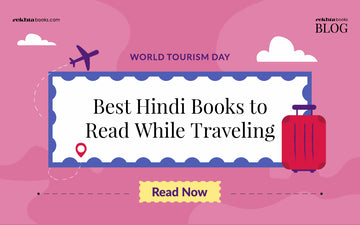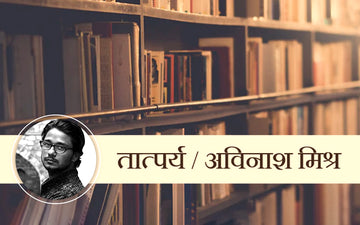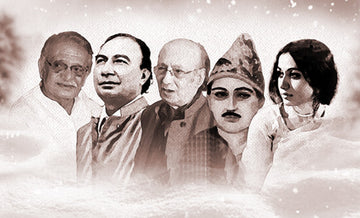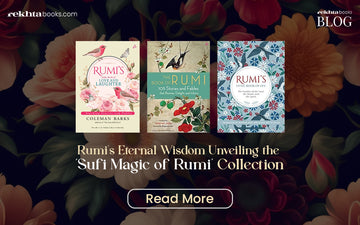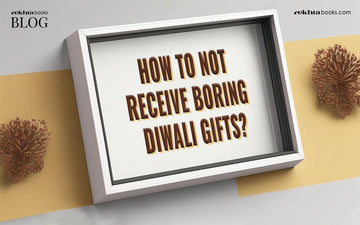Travelling & Reading are probably 2 most easily accessible activities to broaden your mind, experience new things & learn as you go. What a delight it shall be when both happen together.
I can still freshly recall my last visit to the Himalayas, sitting under the giant umbrella in my hillside resort, sipping hot coffee, thoroughly enjoying the heavy shower of rain. Guess what I immediately regretted? Yes! Packing my favorite book for this exact moment. Since that day, I’ve always had this special companion, even on my solo trips. A page-turner book.
Books can help you go back in time, and rejuvenate your mind and thoughts. Books have the power to change your mindset completely, leading to a positive life.
And it was during one of these solo trips, when I was reading one of the English bestsellers, a co-traveller suggested me to try some the best-written Hindi Novels, like “Godaan” by Premchand, “Raag Darbari” by Shrilal Shukla &“Kitne Pakistan” by Kamleshwar.. And when I actually started exploring the Hindi literature, I was astonished by the mind broadening works of Hindi fiction writers.
And on this eve of World Tourism Day, I wish to share my experiences of reading the best of Hindi novels during my travels, that have kept me interesting company not only on the beach or rain splashing on my window, but also in the monotonous cab rides, idle sitting in the trains, staring at other passengers in noisy flights Here are these charming friends.
Published-1949
Gunahon Ka Devta is a significant feat and one of the greatest works in Hindi novel writing by Dharamveer Bharti. Released in 1949, “Gunahon Ka Devta” is still one of the most popular, interesting and best-selling works of Hindi Literature. Millions of readers love and adore this exceptional novel, and its popularity continues to grow amongst the youth, with ever increasing sales among millennials. Many readers believe, this is one of the most tragic desi love stories of India. Comments on social media are testimony to this fact.
Gunahon Ka Devta features four main characters in the story. Protagonist Chander, his love interest Sudha, and Chander's two other lovers Binti and Pammi. The story largely revolves around these characters. When Chander starts getting intimate with his professor’s daughter Sudha, it leads to various arches in the story. Portrayal of this desi love story written in 60s deeply reflects the social taboos associated with young love. Here are the most famous quotes from Gunahon Ka Devta…
Published-1971
One of Mannu Bhandari's brilliant books, “Aapka Bunti” is essential to Hindi fiction and novel landscape of the 20th century. This novel, which was written in 1971, is among the most well-known works of Hindi fiction writing. It's hard to say if “Aapka Bunti” is the story of young boy Bunti, or his mother Shakun. The suffering of one becomes the tragedy of all because of how intertwined the characters’ lives are. The book reflects on reality of Shakun's life, a woman's righteous aspiration and independence that present a challenge to a man from Patriarchal society; as a result, marital conflict leads to their separation. This reflects the reality of the "new woman," who is continually spreading and elevating her status in society. Bunty, who is utterly naïve, innocent, and insecure, is the one who is deeply hurt in this separation of his parents. The storyteller Mannu Bhandari was probably among the firsts to recognize this realm psychological conflict in the perception of a young boy. Every page of this story, which has won praise for its in-depth study of child psychology, is moving and thought provoking. Aapka Bunti is a timeless Hindi novel and a significant contribution to Hindi literature. Here are few most famous quotes from the book:
“जो ज़िंदगी को इतना प्यार करता हो...अपनी ही नहीं, हर किसी की ज़िंदगी को...वह आत्महत्या करेगा? नहीं साहब, नहीं...नहीं! उसे मारा गया है!’ ‘पर किसने मारा? क्यों मारा?”
“ओस-भीगी दूब पर घूमने से केवल नेत्रों की ज्योति ही नहीं बढ़ती, मन-मस्तिष्क में भी ऐसी तरावट आती है कि सारा दिन आदमी तनाव-मुक्त होकर काम कर सकता है। मन शांत, चित्त प्रफुल्लित!”
“उम्मीद की डोर से बँधा हुआ आदमी भी बहुत कुछ कर गुज़रता है कभी-कभी!”
Published-2004
Kashi Ka Assi is a collection of five different stories related to Assi ghat and Assi Mohalla of Banaras. The context of the stories is the political and social system of the 1990s, but they are very relevant in the lens of present.
Some characters are consistent across stories to leave a lasting impression. And all the stories revolve around the local tea shop in Assi mohalla.
Every story takes a dig at some aspect of society or politics. Some things are implied in the course of the story or in the description given by the author, others are made evident from the conversation of the characters.
Here’s a famous quote from the book “Kashi Ka Assi”
भ्रष्टाचार लोकतंत्र के लिए ऑक्सीजन है, है कोई ऐसा राष्ट्र जहाँ लोकतंत्र हो और भ्रष्टाचार न हो? जरा नजर दौड़ाइए पूरी दुनिया पर, ये छोटी-बड़ी राजनीतिक पार्टियाँ क्या हैं? अलग-अलग छोटे-बड़े संस्थान, भ्रष्टाचार के प्रशिक्षण केंद्र, सिद्धान्त मुखौटे हैं जिनके पीछे ट्रेनिंग दी जाती है | आप क्या समझते हैं, जो आदमी चुनाव लड़ने में पंद्रह-बीस लाख खर्च करेगा वह विधायक या सांसद बनने पर ऐसे ही छोड़ देगा आपको? देश को? पागल है क्या?
"Joothan." is one of the landmark works in Indian Dalit Literature, Omprakash Valmiki's autobiography,Since its initial publication, it has earned a distinctive place in Hindi Dalit literature, particularly in the category of memoirs. In his novel Joothan he talks about the discrimination Dalits had to face in the school at different points..
Omprakash Valmiki describes his life as an untouchable, or Dalit, in the newly independent India of the 1950s. Joothan refers to scraps of food left on a plate, destined for the garbage or animals.
Beginning with his appointment at the Ordnance Factory in Dehradun, he begins this second section of his memoirs. In addition to discussing his interactions with the local workforce and the difficulties he was having adjusting to his new identity, he went into great length about his literary advocacy. It is written in clear, fluid, and heartfelt language..
Here’s a famous quote from the book “Joothan” –
“किसी महाकवि ने हमारे जीवन पर एक भी शब्द क्यों नहीं लिखा?”
“बर्दाश्त कर लेने का इतना हौसला था कि आज मैं सोचता हूँ तो हैरान रह जाता हूँ। कितना कुछ छीन लिया है मुझसे इस बर्दाश्त कर लेने की आदत ने!”
This legendary poem revolves around biggest dilemma of Karna’s life and his unparalleled ethics. “Rashmirathi” is one of Dinkar's most well-known works. The eldest child of Kunti, Karna, famously known as Suryaputra, was abandoned at birth by Kunti, and was raised by Royal charioteer. Even though raised in a poor family Karna rose to become one of history's greatest warriors. The Pandavas were concerned about Karna's support on the Kauravas' side because he was thought to be unbeatable. It's quite astonishing how Dinkar tells the tale of Karna while incorporating all the nuances of human feeling caught up in ethical difficulties. Rashmirathi is full of poetry rasas, especially centered around veer rasas is an absolute delight to read during the monotonous periods of your travel. Many well-known personalities have created their renditions of this masterpiece. Most notably- Piyush Mishra included a famous verse in the 2009 Hindi film "Gulaal”. Here are the lines of the same:
These books have been my companion in my various travels, kept me entertained sometimes and hooked to my flight seat at other times. Go ahead and include one of these in your next itinerary and enjoy moments of deep reflection and intellectual growth.

